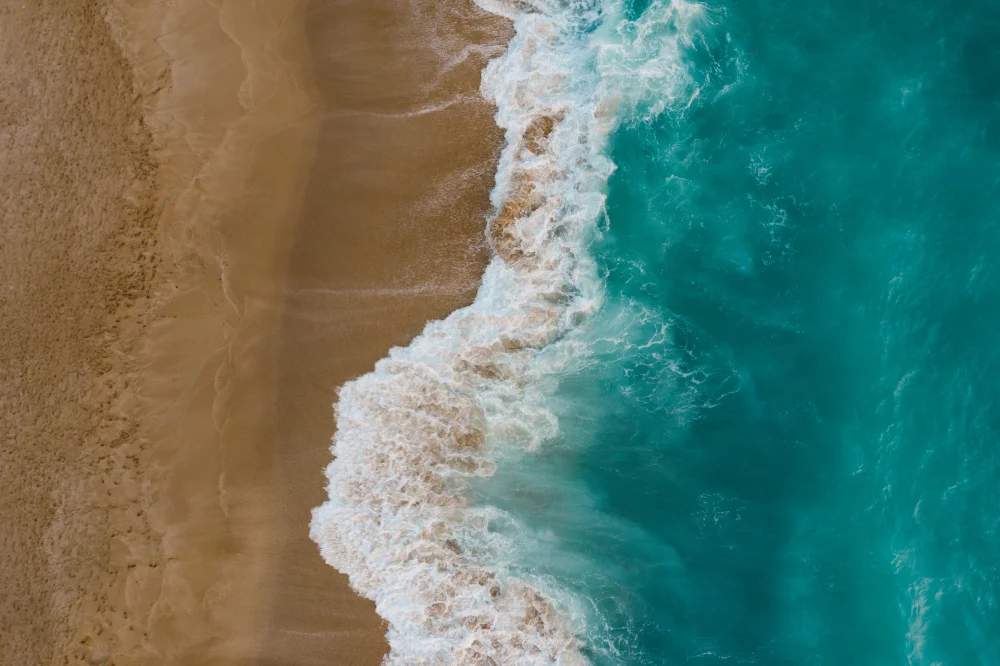It started with an odd question from my niece over breakfast one morning: “Uncle, what if the oceans were made of lemonade?” I nearly laughed—but then paused. What would happen if 70% of the Earth’s surface were filled not with saltwater, but with citrusy, sugary lemonade?
That quirky question stuck with me. As someone with a background in environmental studies and a lifelong fascination with science fiction, I couldn’t help but dig deeper. The more I researched, the more astonishing—and alarming—the answers became. From marine life to global weather systems, shipping lanes to holiday beaches, the effects would be utterly bizarre and, frankly, catastrophic. But also…kind of fascinating.
Let’s dive in. (But maybe don’t open your mouth.)
The Chemistry of Lemonade vs. Seawater
At a glance, lemonade might seem harmless. It’s just water, lemon juice, and sugar, right? But chemically, it’s drastically different from ocean water.
Seawater contains a balanced mix of salts, minerals, and nutrients that marine ecosystems depend on. Lemonade, on the other hand, is highly acidic (pH ~2.5) due to citric acid, and it’s loaded with sugar. That one change in pH alone would be enough to destabilise almost every marine process we know.
“An ocean of lemonade would essentially become a giant vat of acid with sugar,” says Dr. Elaine Peters, a marine chemist at the University of Exeter. “It would be hostile to nearly every form of known marine life.”
The Devastating Impact on Marine Life
If you’ve ever squeezed lemon on fish, you’ve seen what acid does to flesh. Now imagine entire ecosystems—coral reefs, plankton colonies, whale populations—suddenly dunked in that acidity.
Plankton, the base of the ocean food chain, wouldn’t survive. Without them, the entire marine food web collapses.
Fish, even those adapted to low pH conditions, would find their gills burned and internal pH balance destroyed.
Marine mammals, from dolphins to whales, would likely die from ingesting or inhaling acidic mist.
And that’s just the biology. It gets weirder.
Would Ships Still Float?
Technically, yes. Lemonade is water-based, so most vessels would still float. But sugar is sticky, corrosive, and messy.
Saltwater is tough on ships, but engineers design vessels accordingly. Acidic lemonade, however, would rapidly corrode metal hulls and dissolve rubber components. Sugar residues would clog engines, jam cargo mechanisms, and attract unimaginable swarms of insects.
“We’d see entire industries needing to redesign everything—ships, oil rigs, even oceanic sensors,” says Harriet Nolan, maritime engineer with the British Naval Design Authority.
Oh, and imagine the stench of rotting sugar under a blazing tropical sun.
The Global Climate Would Spiral
Oceans regulate Earth’s climate through thermal regulation and carbon cycling. Seawater absorbs solar radiation, stores carbon dioxide, and influences weather patterns via evaporation and currents.
Now imagine lemonade oceans.
Evaporation would carry not just water vapour, but acidic mist and sugary particles. This would likely cause unknown effects on cloud formation and rainfall.
Acid Rain would become the new normal. As this acidic vapour condensed and fell back to Earth, forests and freshwater ecosystems would be ravaged.
Hurricanes and Cyclones, fuelled by warm ocean waters, might become unpredictable due to the changed surface chemistry. Would lemonade storms be stickier? Maybe. But definitely deadlier.
Tourism and Recreation: Goodbye Beach Holidays
Beaches would lose their appeal fast. No one wants to sunbathe next to foamy, acidic lemonade.
Surfers? Gone. Snorkelling? Forget it. Even casual paddling would lead to skin irritation, eye burns, and potentially worse.
And good luck getting that sugar out of your swimsuit.
Agriculture and the Lemonade Water Cycle
What about using the lemonade for crops?
It sounds absurd, but farmers might be tempted to harvest lemonade as irrigation water. However, the acidity and sugar content would sterilise soil microbes and encourage fungal growth. Crops would rot rather than thrive.
“Plants aren’t equipped to process sugar water at scale,” notes Dr. Faizan Mehmood, a soil biologist based in Cambridge. “And citric acid breaks down essential enzymes in root systems. It’s essentially agricultural poison.”
Could Anything Survive?
It’s hard to imagine. But extremophiles—organisms that survive in extreme conditions—might stand a chance. Certain acid-loving bacteria could flourish, though they’d likely be harmful to humans.
One theoretical idea is the development of artificial micro-ecosystems or bioengineered organisms that can tolerate high acidity. But that’s decades away—if not impossible.
What About Us? Human Health Implications
The biggest shift might be to drinking water. If oceans were lemonade, the global desalination industry would collapse. You can’t extract clean water from sugar-infused acid without massive energy input.
Millions rely on the ocean for drinking water and food. With marine ecosystems dead and water tables poisoned, humanitarian crises would spike.
Diseases would spread faster, too—standing acidic water is a breeding ground for bacteria. Plus, inhaling sugary mist could lead to chronic respiratory problems.
Are There Any Upsides?
Let’s humour the idea. Could we bottle it and sell it? Probably not. The logistics of filtering billions of litres of lemony ocean are insane. And with the sheer amount of sugar, the oceans would quickly ferment—turning into one giant batch of sour, alcoholic sludge.
So no, Coca-Cola isn’t about to go fishing.
Lessons from a Thought Experiment
While this scenario is imaginary, it shines a light on the fragility of our natural systems.
Our oceans are precisely balanced ecosystems, fine-tuned over millions of years. Disrupting them—even with something as seemingly innocent as lemonade—reveals just how interconnected everything is: from the air we breathe to the food we eat.
FAQ:
Would we survive if oceans turned to lemonade?
Highly unlikely. The collapse of marine ecosystems, climate shifts, and loss of fresh water would be devastating.
Could we filter the lemonade back into water?
In theory, yes—but it would require immense energy and technology. Far more effort than desalinating seawater.
Would the oceans ferment?
Yes. With enough sugar, natural yeasts and heat, the oceans would turn alcoholic and toxic.
Could any animals adapt?
Possibly some acid-loving microbes, but most marine and terrestrial species would perish.
What would happen to the weather?
Massive disruptions. Acidic evaporation could change cloud formation, increase acid rain, and cause unpredictable storms.
Final Thought: What a Lemon Teaches Us
The next time someone throws out a silly question, take a beat. Because behind it might lie lessons about our world’s complexity, balance, and resilience.
And maybe—just maybe—that childlike curiosity is what will save us.
What do you think? Would you still dip your toes into the lemonade sea? Let me know in the comments or share your wildest thought experiment with me!
Read Also: Why Do Guys Joke About Getting You Pregnant?




